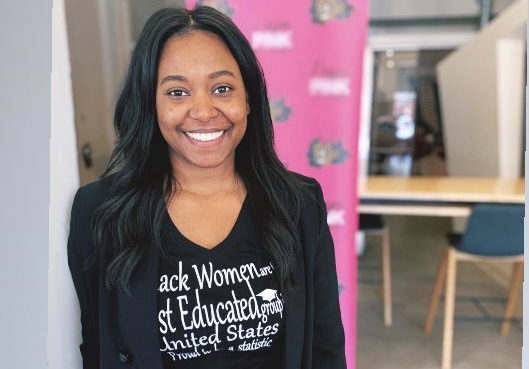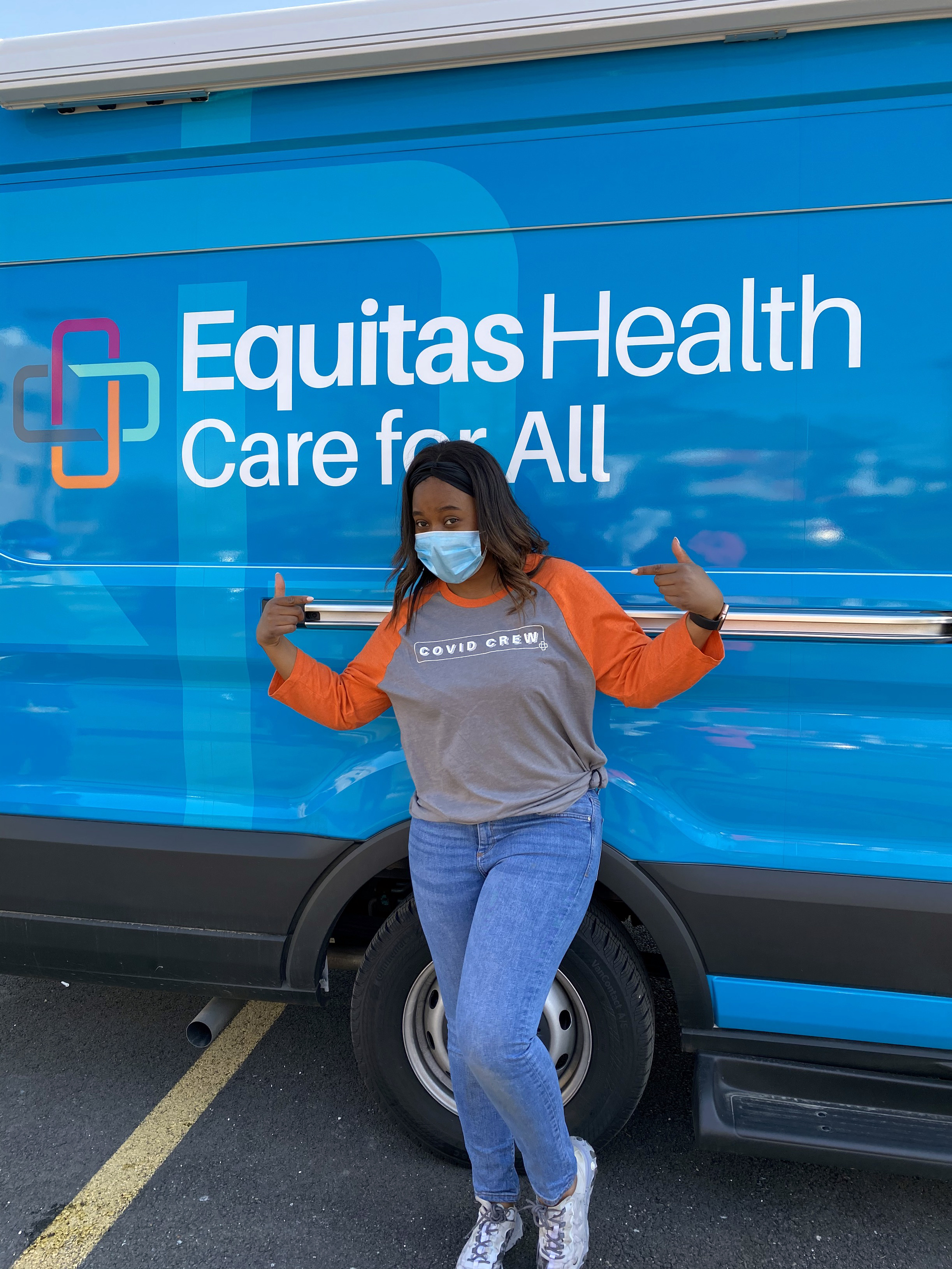Public Health Buckeyes: Olivia Nathan
Online MPH student furthers passion for helping underserved communities

Olivia Nathan, a first-year student in the college’s online Master of Public Health Program for Experience Professionals (MPH-PEP) is a Columbus native and board-certified HIV Pharmacist at Equitas Health. Nathan is passionate about delivering culturally competent care to underserved populations, particularly the BIPOC (Black, Indigenous and people of color) community and those who are deaf and hard-of-hearing. Nathan is fluent in American Sign Language.
Question and Answer
Can you tell us about your background?
I attended the Columbus School for Girls, where I had the advantage of becoming a critical thinker, self-starter and team player. I continued in single-sex education during my undergraduate studies at Spelman College, a historically black college and university in Atlanta, where I obtained a Bachelor of Science in biology. I then earned my Doctorate of Pharmacy from the University of California, San Francisco, where I gained experience working with the HIV/AIDS community.
Why did you decide to pursue the MPH-PEP program at Ohio State?
Currently, I work in one of the only health care centers in the King-Lincoln District, a health care desert in central Ohio. It has become increasingly clear during the COVID-19 pandemic that there’s a need for pharmacists like me who understand health care disparities and are willing to advocate for health equity.
I decided to pursue the MPH-PEP program to enhance my competencies to better serve patients in the community where I work. This program will give me the knowledge to effectively advocate on behalf of my patients.
What have you learned through your role as a pharmacist at Equitas Health?

My role has taught me to develop into a practitioner who seeks to care for the whole person. I’m consistently inspired by the resilience of my patients, and it is an honor to work together as a team and partner in achieving their health goals.
My role has also afforded me the ability to serve the community. Most recently, I have increased COVID vaccine uptake in the King-Lincoln District BIPOC community, leading a grassroots effort to educate our community about the vaccine and help them get vaccinated. As a result, over 500 folks with access issues (limited access to a computer or internet) were able to get vaccinated. We also offered clinics to those affected by limited appointment times outside normal business hours.
How did you get into HIV advocacy?
It wasn’t until I moved to San Francisco that my world changed. During my fourth year of pharmacy school, I had a rotation in HIV/AIDS care. The pharmacist took me in an exam room with her to speak to a very ill patient living with HIV. The patient did not say a word the entire time. On our way out of the room, the patient said, “I want to talk to her,” pointing at me. Shocked, I stayed in the room. She said she identified with me simply because we looked around the same age and were both people of color. She told me she needed help. She was very unmotivated to take her HIV medications. I worked with her for the remainder of the month and on the last day of my rotation, she pulled me aside and said, “Thank you for saving my life.”
That moment stuck with me. On that day, I committed to showing up for my patients and doing my part to win the fight to reduce the spread of HIV. Although Black people are underrepresented in the field of pharmacy, Blacks are the most impacted by HIV in America.
What's something that more people should know about HIV?
HIV isn’t a death sentence; it's an easily manageable chronic condition that people live long, productive and dignified lives with. I also want people to know that they can play an important role in reducing stigma and discrimination by offering support and speaking out to correct HIV myths and stereotypes.
How do you see your public health education shaping your future?
The public health pharmacist can be involved in advanced pharmacy practice, health policy development, emergency and humanitarian response, public health leadership, global health and much more. Pharmacists across all sectors can play a role in dismantling structural racism. I see my public health education allowing me to create systems and structures that provide equity and actively address systemic racism.
What advice would you give to those considering a master's or professional degree?
Develop a routine rooted in time management and organization. At 34, I never imagined being a student again. Don’t let your age hinder you from pursuing a program to equip you with the tools needed to address the change you want to see in the world.
About The Ohio State University College of Public Health
The Ohio State University College of Public Health is a leader in educating students, creating new knowledge through research, and improving the livelihoods and well-being of people in Ohio and beyond. The College's divisions include biostatistics, environmental health sciences, epidemiology, health behavior and health promotion, and health services management and policy. It is ranked 22nd among all colleges and programs of public health in the nation, and first in Ohio, by U.S. News and World Report. Its specialty programs are also considered among the best in the country. The MHA program is ranked 5th and the health policy and management specialty is ranked 21st.